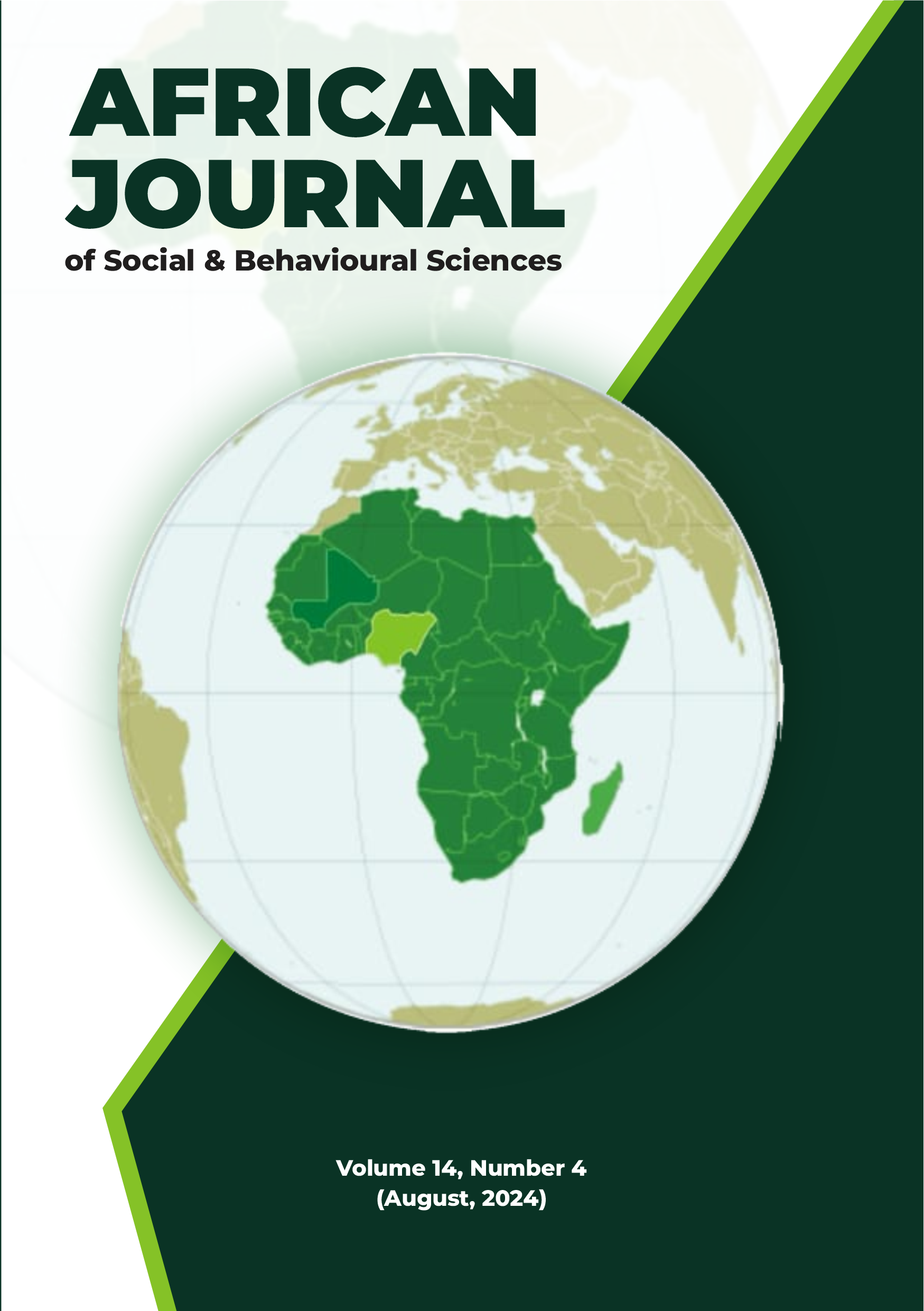EFFECT OF EMOTIONAL INTELLIGENCE, PERCEIVED CONTROL AND MATE SELECTION PREFERENCES ON WORK STRESS PRODUCTIVITY OF LITERATE MARRIED PERSONS IN IMO STATE, NIGERIA
CURRICULUM IMPLICATIONS
Keywords:
Emotional Intelligence, Perceived Control, Mate Selection Preferences, Work Stress Productivity, Married PersonsAbstract
The purpose of this study is to explore the curriculum implications of the effect of emotional intelligence, perceived control and mate selection preferences on the work stress productivity of literate married persons in Imo State. Two research questions and hypotheses were formulated to guide the study. The study employed a quasi-experimental research design. The population of the study included all 1181 literate married lecturers at Imo State University, where cluster sampling was used to select 64 married lecturers from the faculty of education. Three (3) Questionnaires were used as the instrument for data collection. The reliability of the instrument was ascertained using Cronbach’s alpha, with an overall index of 0.83. The data collected were analysed using the mean score and standard deviation to analyse the research questions, and ANCOVA was used to analyse the hypotheses at the 5% level of significance. The study revealed that emotional control, perceived control and mate selection preferences are effective in managing the work stress productivity of literate married persons, but the most effective among them is mate selection preferences. The study further revealed that there was a significant difference among the adjusted mean scores on the effect of emotional intelligence, perceived control and mate selection preferences on the work stress productivity of literate married persons during the pretest and posttest periods. The study recommends that emotional control, perceived control and mate selection preferences can be applied by guidance and counsellors to manage the work stress productivity of literate married persons.


